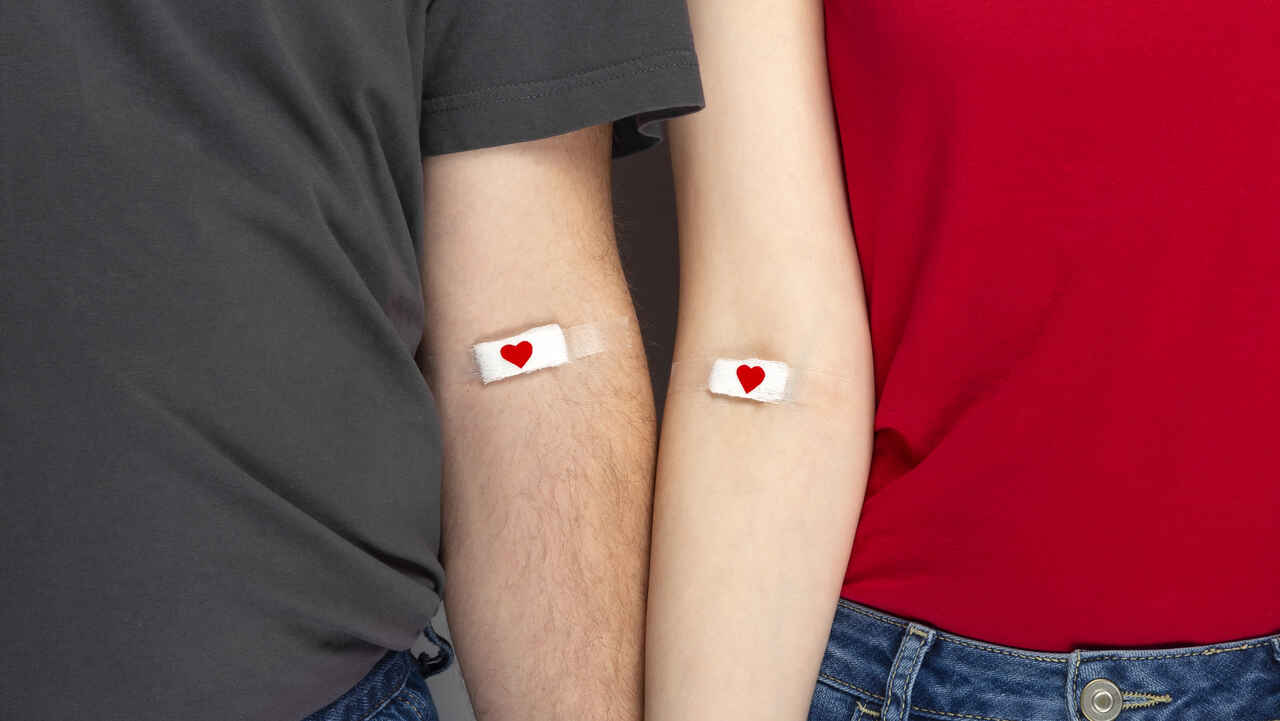
Yes. And here’s why now is the perfect time to do it.
Blood donations are down throughout the country, raising concerns that there won’t be enough blood to satisfy demand. If you’ve been thinking about donating blood, there’s never been a better time to do so.
Unfortunately, many blood drives were cancelled and donation hours reduced due to COVID-19. Winter storms affected blood collection efforts, causing or worsening blood shortages in many regions of the country. And fewer people tend to donate blood during the summer months, even in normal times.
Blood banks could really use your help now. Your blood donation helps cancer patients, people injured in accidents and natural disasters, and those suffering from hemorrhages, anemia and blood clotting diseases. If you’ve been considering donating blood but aren’t sure the time is right or don’t know how the COVID-19 virus or vaccination affect your ability to donate, these questions may offer a little reassurance.
“If you’re looking for a way to jump start your summer by helping others – here is your chance. Blood supply is down nationally, and also in Baton Rouge. If you are a healthy individual, this is a great way to give back to all sorts of patients in need of blood. Blood donation has been an especially personal topic as our dear friends continue to help their son #MightyMiles fight his battle with Acute Lymphoblastic Leukemia. For all the sons, daughters, sisters, brothers, Aunts, Uncles, Moms, Dads, Grandpas, and Grandmas out there in need of your help – please consider making a blood donation today!”
How long do I have to wait to give blood after being vaccinated for COVID-19?
Donation rules vary depending on the organization. You can donate blood through the Red Cross as soon as you’re vaccinated, as long as you don’t have symptoms, if you’ve received vaccines approved for use in the U.S., including Moderna, Pfizer or Johnson & Johnson. People who have been vaccinated cannot donate convalescent plasma.
Other centers may have slightly different rules. For example, OneBlood allows people to donate immediately after receiving the Pfizer or Moderna vaccines. Anyone who gets the Johnson & Johnson or another vaccine will have to wait two weeks before donating. Be sure to check the rules of the particular center before you make an appointment to donate blood.
Do I have to prove which vaccine I received?
You probably received a card that listed the name of the vaccine manufacturer when you got your shot. The blood donation center may require that you bring the card or other proof of vaccination with you when you donate blood.
Will I be permitted to donate blood if I had COVID-19?
People who had COVID-19 can donate blood. The American Red Cross asks people who’ve had the virus to wait at least 14 days after diagnosis or displaying symptoms before giving blood. Once you’ve fully recovered, you may have antibodies in your blood plasma that may help people with serious COVID-19 infections.
Will donating blood reduce my immunity to COVID-19?
Whether you’ve had the COVID-19 virus or have been vaccinated, your body builds an immune response by producing antibodies and protective T-cells. Even though these are stored in your blood, the amount lost during a blood donation is not enough to lower your immunity.
What COVID-19 safety measures can I expect to see when I give blood?
Before you enter the donation area, your temperature will be taken. If you have a fever, you won’t be able to donate blood. If you’ve been feeling sick or have been in close contact with someone who has COVID-19, you may be asked to reschedule your appointment. You’ll need to wear a mask and practice social distancing during your visit. All employees will wear gloves and masks. Donation stations will be spaced out to make social distancing easier. Employees will clean donation chairs and other equipment thoroughly between donors.
Copyright 2021 © Baldwin Publishing, Inc. All rights reserved.
Health eCooking® is a registered trademark of Baldwin Publishing, Inc. Cook eKitchen™ is a designated trademark of Baldwin Publishing, Inc. Any duplication or distribution of the information contained herein without the express approval of Baldwin Publishing, Inc. is strictly prohibited.
Date Last Reviewed: April 16, 2021
Editorial Review: Andrea Cohen, Editorial Director, Baldwin Publishing, Inc. Contact Editor
Medical Review: Perry Pitkow, MD
Learn more about Baldwin Publishing Inc. editorial policy, privacy policy, ADA compliance and sponsorship policy.
No information provided by Baldwin Publishing, Inc. in any article is a substitute for medical advice or treatment for any medical condition. Baldwin Publishing, Inc. strongly suggests that you use this information in consultation with your doctor or other health professional. Use or viewing of any Baldwin Publishing, Inc. article signifies your understanding and agreement to the disclaimer and acceptance of these terms of use.